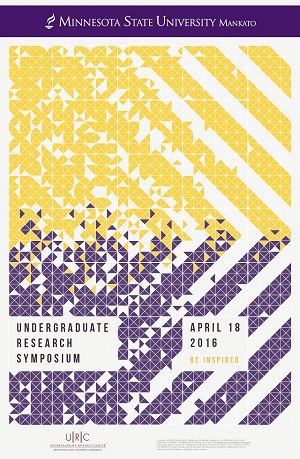Effect of Bilingual Cognitive Intervention on Literacy Skills: A Single Subject Design Study
Location
CSU Ballroom
Start Date
18-4-2016 2:00 PM
End Date
18-4-2016 3:30 PM
Student's Major
Speech, Hearing, and Rehabilitation Services
Student's College
Arts and Humanities
Mentor's Name
Megan Mahowald
Mentor's Department
Speech, Hearing, and Rehabilitation Services
Mentor's College
Allied Health and Nursing
Description
Despite the efficacy of cognitive therapy (drill and strategy based instruction to improve attention and memory) in adults with acquired communication disorders, there is a dearth of research on how these cognitive protocols impact children and adolescent’s language and literacy skills and individuals who are bilingual. Therefore, this single subject design study explores the effectiveness of cognitive therapy in a college-aged bilingual individual with language and reading difficulties. The participant, Tomas, is a twenty-two year old college freshman who has been diagnosed with Attention Deficit Hyperactivity Disorder (ADHD) and ecutive functioning disorder. He is seeking to improve his reading, writing and comprehension. Tomas was born in Mexico City, Mexico. At the age of twelve, he attended an academy where he received speech and language services for three hours a day. Tomas started learning English at the academy; however, his relative strengths are in speaking, reading and writing in Spanish; though he struggles in reading comprehension in Spanish. Three 90 minute sessions per week for 12 weeks were conducted; including an English, Spanish and homework session. In the English and Spanish sessions, Tomas participated in spelling sorts, reading comprehension and attention and memory tasks. The Spanish session targets writing and vocabulary knowledge. The homework session is designed to reinforce strategies from prior sessions in order to foster his academic independence and success. Preliminary data indicate that Tomas has made some improvement across all reading and memory tasks.
Effect of Bilingual Cognitive Intervention on Literacy Skills: A Single Subject Design Study
CSU Ballroom
Despite the efficacy of cognitive therapy (drill and strategy based instruction to improve attention and memory) in adults with acquired communication disorders, there is a dearth of research on how these cognitive protocols impact children and adolescent’s language and literacy skills and individuals who are bilingual. Therefore, this single subject design study explores the effectiveness of cognitive therapy in a college-aged bilingual individual with language and reading difficulties. The participant, Tomas, is a twenty-two year old college freshman who has been diagnosed with Attention Deficit Hyperactivity Disorder (ADHD) and ecutive functioning disorder. He is seeking to improve his reading, writing and comprehension. Tomas was born in Mexico City, Mexico. At the age of twelve, he attended an academy where he received speech and language services for three hours a day. Tomas started learning English at the academy; however, his relative strengths are in speaking, reading and writing in Spanish; though he struggles in reading comprehension in Spanish. Three 90 minute sessions per week for 12 weeks were conducted; including an English, Spanish and homework session. In the English and Spanish sessions, Tomas participated in spelling sorts, reading comprehension and attention and memory tasks. The Spanish session targets writing and vocabulary knowledge. The homework session is designed to reinforce strategies from prior sessions in order to foster his academic independence and success. Preliminary data indicate that Tomas has made some improvement across all reading and memory tasks.
Recommended Citation
Barr, Danielle; Kristina Hanson; Kellie Metzger; and Kortni Thompson. "Effect of Bilingual Cognitive Intervention on Literacy Skills: A Single Subject Design Study." Undergraduate Research Symposium, Mankato, MN, April 18, 2016.
https://cornerstone.lib.mnsu.edu/urs/2016/poster-session-B/4




